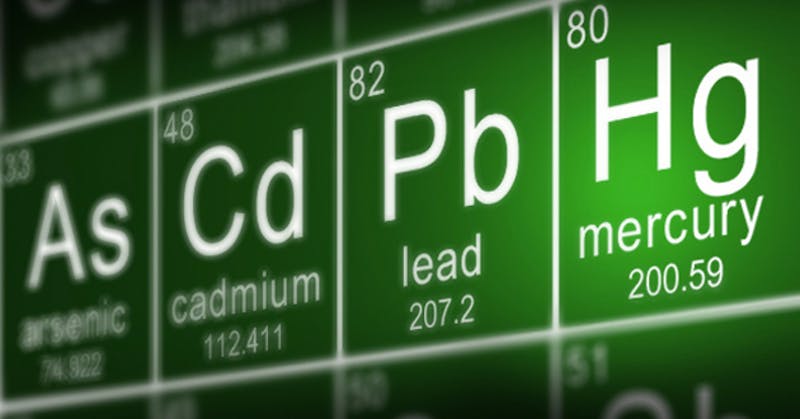ASTM D4327 Mercury and Arsenic Testing in Food
The ASTM D4327 standard test method is a cornerstone of ensuring food safety by providing precise and accurate determination of mercury (Hg) and arsenic (As) concentrations within food products. This service plays an essential role in safeguarding public health, especially concerning the heavy metals that can be toxic at high levels.
Mercury and arsenic are naturally occurring elements present in soil, water, air, and plants. While they are necessary for certain biological processes, excessive exposure to these elements can lead to severe health issues such as neurological damage, cardiovascular diseases, and cancer. The standard test ASTM D4327 aims at identifying the presence of mercury (Hg) and arsenic (As) in various food items including grains, fruits, vegetables, and processed foods.
The testing procedure involves several steps to ensure accurate results:
- Sample Collection: Proper collection of the sample is critical. The sample must be representative of the food item under test.
- Precipitation and Digestion: Samples are digested to convert mercury and arsenic compounds into a form that can be readily measured using atomic absorption spectroscopy (AAS).
- Detection: Using AAS, the concentrations of mercury and arsenic in parts per billion (ppb) or parts per trillion (ppt) are determined.
The precision and accuracy of this ASTM D4327 test method make it a preferred choice for quality managers, compliance officers, R&D engineers, and procurement teams who need to ensure that their products meet stringent safety standards. This service is particularly important in the food sector where the integrity of the supply chain must be maintained.
Compliance with international standards such as ASTM D4327 not only ensures product safety but also helps companies avoid legal issues and negative publicity. By adhering to this standard, businesses can demonstrate their commitment to ethical practices and consumer protection.
Benefits
The benefits of ASTM D4327 testing in food are manifold:
- Enhanced Safety: Ensures that the products meet or exceed safety standards, protecting consumers from harmful levels of mercury and arsenic.
- Compliance Assurance: Helps companies comply with international regulations and maintain a clean bill of health for their products in various markets.
- Risk Mitigation: Identifies potential hazards early, allowing for corrective actions to be taken before they escalate into significant issues.
- Reputation Protection: Maintains brand integrity and consumer trust by ensuring that the company is committed to high standards of quality and safety.
Eurolab Advantages
At Eurolab, we pride ourselves on offering unparalleled expertise in ASTM D4327 testing. Our team of highly skilled professionals ensures that every test is conducted with the utmost precision and accuracy.
- Advanced Equipment: We utilize state-of-the-art atomic absorption spectrometers to provide reliable results.
- Experienced Staff: Our experts are trained in handling a wide range of food samples and can offer valuable insights into the testing process.
- Comprehensive Reporting: We deliver detailed reports that not only contain test results but also provide actionable recommendations for improvement.
Environmental and Sustainability Contributions
The ASTM D4327 testing service at Eurolab contributes significantly to environmental protection by ensuring that food products are free from harmful levels of mercury and arsenic. By identifying and mitigating these contaminants, we help prevent their release into the environment through waste streams.
- Reduction in Pollution: Ensuring that heavy metals do not enter the food chain helps reduce pollution levels.
- Sustainable Practices: By adhering to this standard, we support sustainable practices and contribute to a healthier planet.





